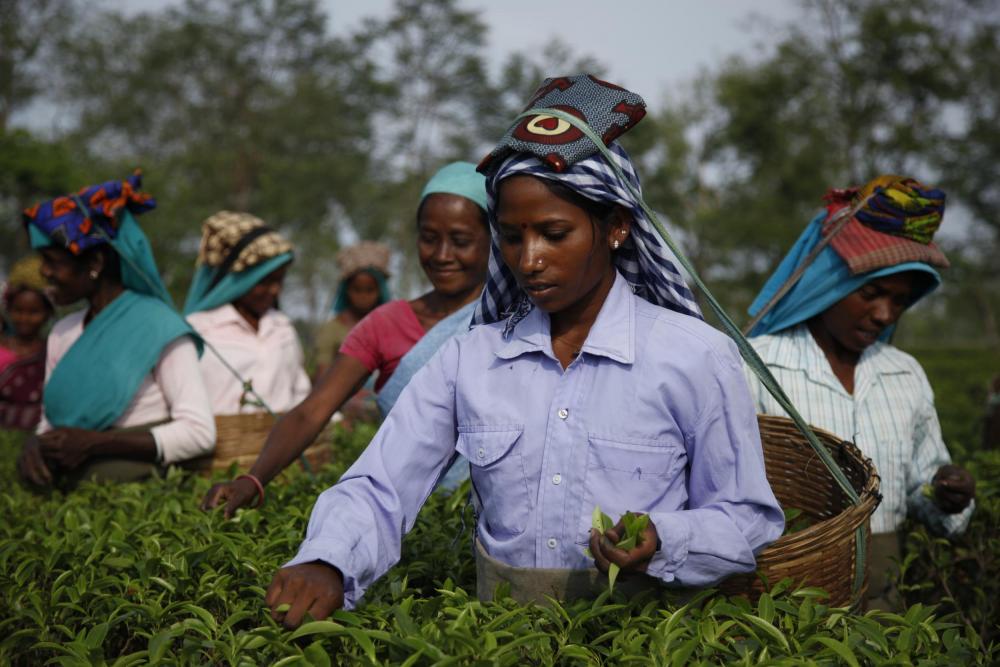
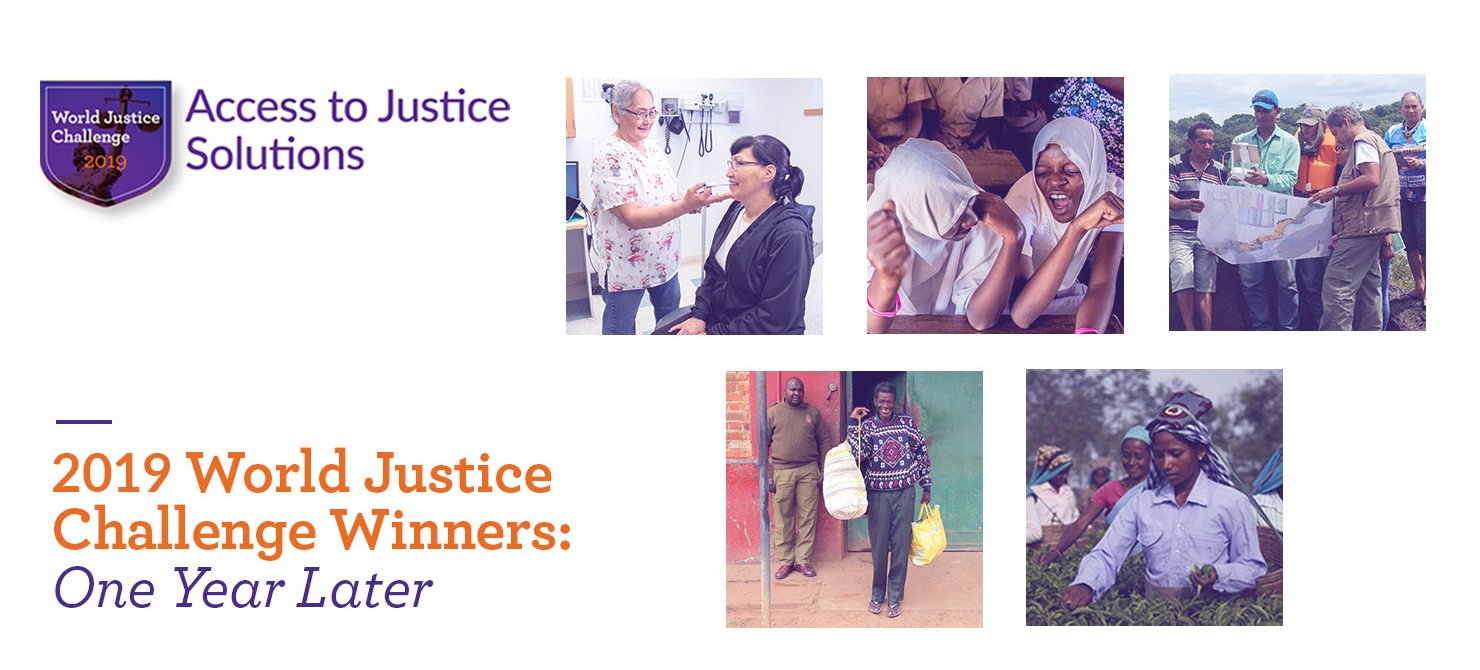
One year ago, the World Justice Forum 2019 concluded with the announcement of the winners of the 2019 World Justice Challenge: Access to Justice Solutions. To mark this occasion, WJP is catching up with each winning project to learn how their work has evolved over the past year, the challenges they face, and how the World Justice Challenge prize money has bolstered their work.
These updates highlight projects that are expanding in terms of impact, reach, and innovation. The Malawi Resentencing Project's campaign to release prisoners from death row is expanding to Tanzania and Kenya based on the jurisprudence developed in the Malawi context. In Kenya, the 160 Girls Project, which seeks to protect girls from sexual violence, is set to expand to all schools in Kenya and train 80,000 police officers to investigate child rape cases.
The World Justice Challenge prize money the projects received has directly helped with these positive developments. In Brazil, Instituto Socioambiental used the award to fund a documentary retracing the story of riverine people and their displacement and recording the social and political process shaping their return. This documentary will help the project raise awareness about the displacement and return the riverine people to their home. In India, the award funding helped Nazdeek strengthen their advocacy efforts for women working in Assam and Delhi, and expand both their team and their work to different regions across the country.
The project reports, however, also point to serious challenges. The COVID-19 crisis has created crises within the projects themselves. In Alaska, the Partnering for Native Health project is faced with the reality of native health partners redirecting their efforts to fight the COVID-19 pandemic, while also having to respond to the increased need for legal assistance as unemployment rises in the state. In Kenya, Equality Effect has had to move its Justice Clubs to a virtual setting, and the girls the project aims to protect are now more at risk of being raped and having no recourse to report it as schools have closed.
Political and legislative transitions also have created new risks. In Brazil, the Riverine People project has been completely stalled since President Jair Bolsonaro's rise to power. The new government's backing of agribusiness and big industry interests has meant that the riverine people have still not been allowed to return to their homes. In India, legislative rollbacks and the new Citizenship Act proposed by the Modi government are directly threatening not only the livelihood of the plantation workers Nazdeek’s project aims to protect, but also the paralegals that help make it a success.
These projects, which captured the attention of our judges at the World Justice Forum in The Hague, were among 30 finalists chosen from over 250 applications from around the world. They each represent innovative efforts to bring justice to individuals and communities that have seen little of it in the past. We are excited to share their latest work with you and to encourage the rule of law community to participate in our upcoming World Justice Challenge 2020. Stay tuned for more World Justice Challenge 2021 details coming this fall, and follow along in the coming weeks as we share full updates on the 2019 winners.
Explore Project Updates:
160 Girls Access to Justice Project
The Equality Effect – Kenya
One in three Kenyan girls experience sexual violence. In 2013 the Kenyan High Court found that police failure to enforce existing rape law had created a climate of impunity. This project is working to change this culture through police trainings, education, and creative legal advocacy projects.
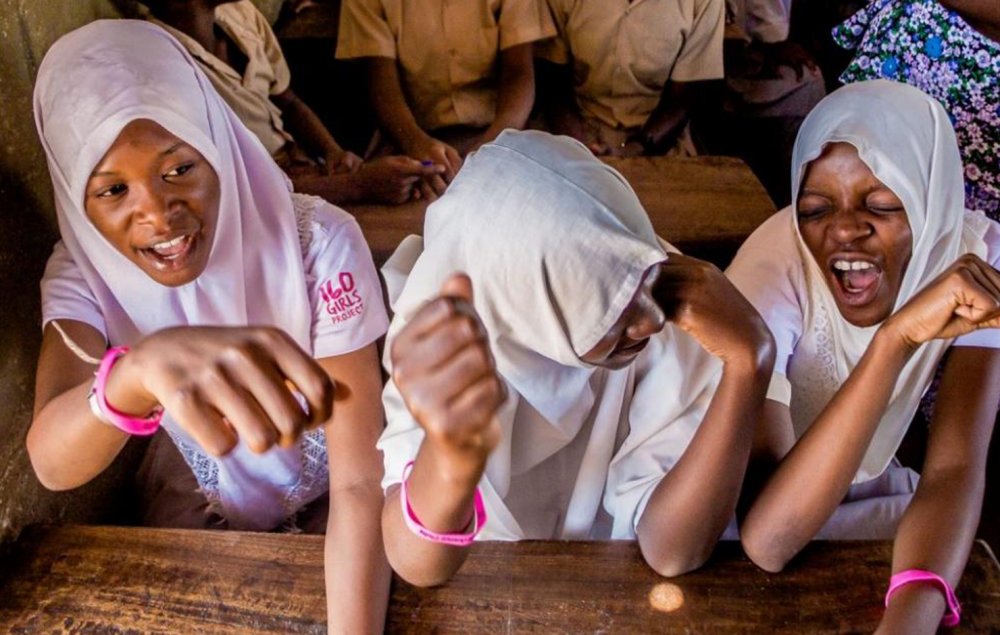
Riverine People and the Right to Full Reparations
Instituto Socioambiental – Brazil
In 2015, 300 families who lived on the islands and banks of the Xingu River, state of Pará, Brazil, were forcibly displaced from their homes to make way for the reservoir of Belo Monte hydroelectric power plant. This project, through strategic advocacy and a broad negotiation with the Brazilian government and the corporation building the dam, was able to influence the elaboration and implementation of an adequate reparation policy for traditional populations impacted by large infrastructure projects.
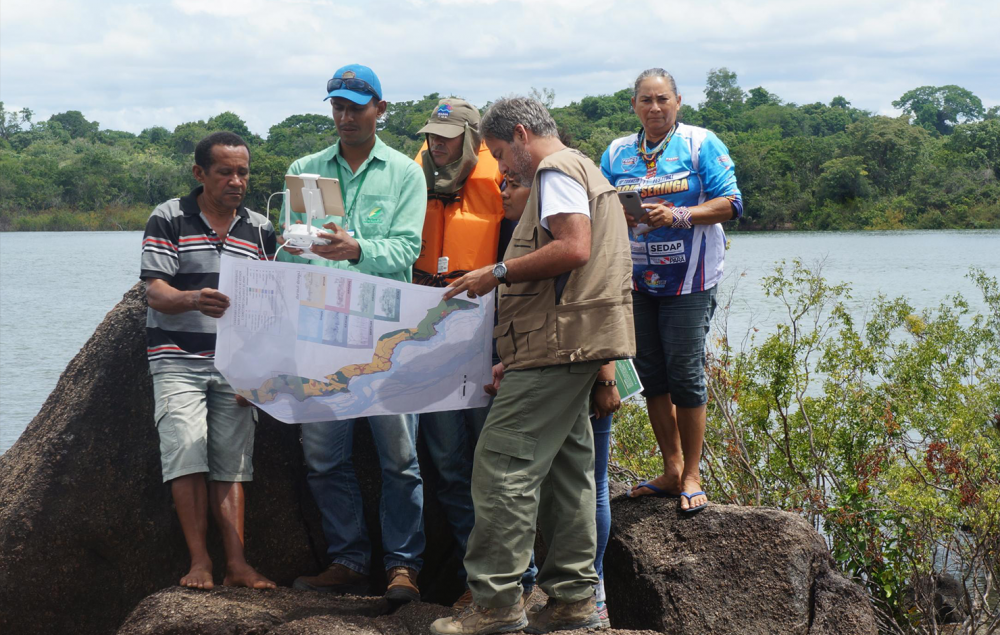
Malawi Resentencing Project
Cornell Center on the Death Penalty Worldwide, Malawi Legal Aid Bureau, and Reprieve – Malawi
In 2007, the Malawi High Court struck down the mandatory death penalty on the grounds that it violated the accused’s constitutional rights to a fair trial and access to justice. As a result of the ruling, every man and woman given a mandatory death sentence was entitled to a new sentencing proceeding where they could present mitigating evidence such as good character, youth, mental illness, or any other factor that diminished their moral blameworthiness. The Malawi Resentencing Project was launched in 2014 by a coalition of partners to address these challenges, support new sentence hearings that adhered to international fair trial standards, and bring justice to the men and women who had languished for years on Malawi’s death row.
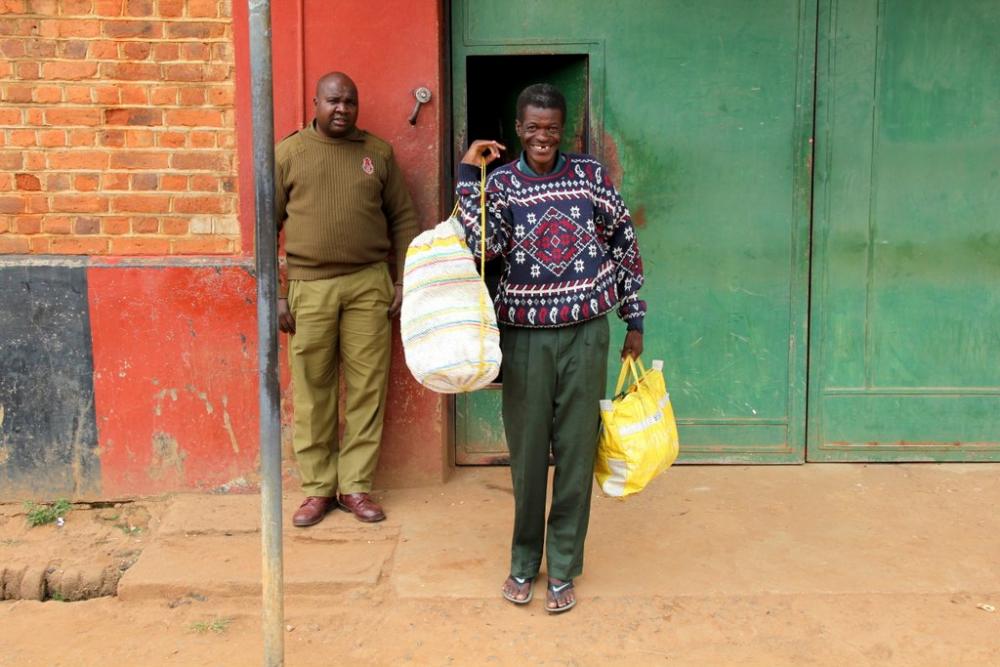
Partnering for Native Health
Alaska Legal Services – United States
Indigenous populations throughout the United States experience some of the greatest health inequalities. This Partnering for Native Health project (PNH) is the first U.S. collaboration to combine health services and civil legal assistance to a target population of economically vulnerable indigenous individuals, specifically targeting remote and rural areas. PNH addresses indigenous peoples' social determinants of health by using legal empowerment and education as a tool to improve the health and safety of indigenous people living within the U.S., and establishing culturally-appropriate and locally-based networks of civil legal advocates embedded in the tribal health care delivery system.
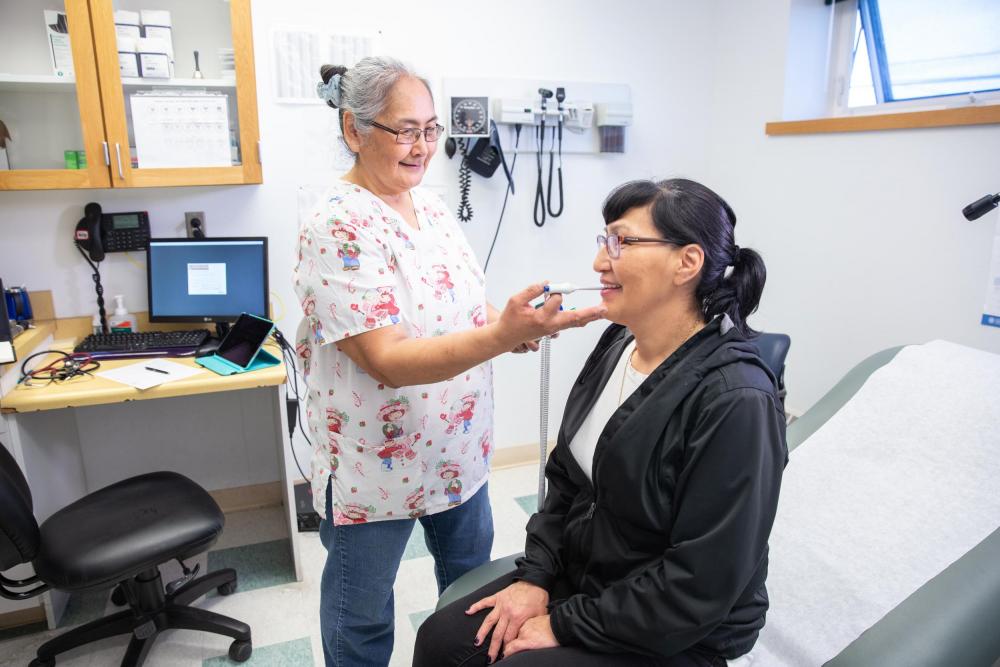
Monitoring Maternal Health Entitlements and Increasing Access to Grievance Redressal
Nazdeek – India
The State of Assam experiences the highest maternal mortality rate in India. Health concerns are compounded on tea plantations where workers face substandard working conditions that negatively impact their health. This project developed grievance forums to identify and monitor rights violations, provide a mechanism for communities and the legal/administrative systems to discuss issues and concerns, and ultimately assist women in seeking redress for their maternal and child health problems.
